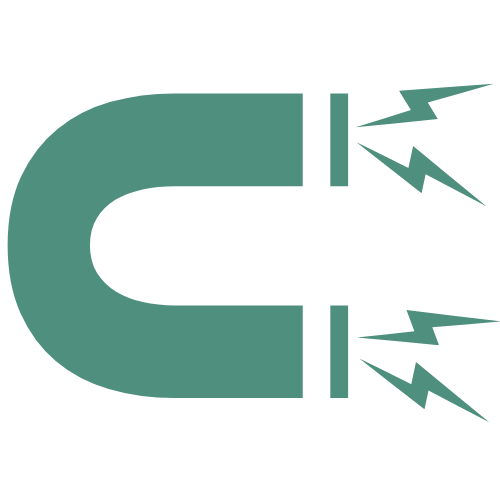Learning to say no is a valuable piece of finding your calling and following your purpose. When you feel obliged to follow the whims and meet the needs of others, it can be almost impossible to hear your own needs and then follow them.
 Saying no to the non-essentials is a function of healthy boundaries. Boundary work shows up with all my burnout and chronic illness clients. Burnout, illness, and fatigue offer amazing opportunities to explore boundaries in a new way.
Saying no to the non-essentials is a function of healthy boundaries. Boundary work shows up with all my burnout and chronic illness clients. Burnout, illness, and fatigue offer amazing opportunities to explore boundaries in a new way.
I used to be filled with boundless energy. Everything seemed possible to me and it was natural for me to pour my idea-generating brain and strong back into everything I did. That included supporting practically everyone I met in their endeavors. I was genuinely excited about them! But I’m not sure excitement meant I needed to help other people implement or repair their businesses. It never occurred to me that was, literally, their business.
I founded a limousine business because some acquaintances wanted to, themselves, but didn’t have the resources. Yep, a limousine business. Did I care one whit about limos or that kind of business? Not. One. Whit. So, with my fearless enthusiasm, I started a business. Lots of good things came out of that business, but I worked practically around the clock (because no boundaries even for time off in this 24/7 business) for EIGHT years. That’s a long time and a lot of resources to pour into a business I didn’t love. I credit that, in part, with my eventually getting sick.
When I became chronically ill and plagued with extreme fatigue, I had to decline most invitations and expectations. I hated that!
I wanted to do ALL the things. Or so I thought.
Too sick to do everything, I began to learn the definition of the word priority. I’d previously prioritized which thing I would do first. My lack of energy forced me to prioritize which thing I would do. What was my ONE thing? What was essential? It definitely wasn’t running a chauffeur service.
Illness at first first forced me, then gave me “permission” to say no to things I might not even have realized were out of alignment for me. It allowed me to practice learning how to say no. Most folks understood I couldn’t do as much, anymore, and didn’t push the boundary.
Now I don’t need illness for permission. I’m clearer on what matters most to me, in a way I may never have clarified without having had to prioritize so ruthlessly. And those boundary-setting muscles have gotten stronger – and more graceful as I learn to trust myself – with practice.
Now I graciously say no to things I am well enough to do, simply because they don’t spark joy or call to me or serve my deeper purpose. And that allows me to live much more into yes.
You can, too.
You don’t need chronic fatigue or illness to create or benefit from healthy boundaries.
Tuning in to whether you want to say yes or no, the word No and its variations, and practice, are the building blocks of boundaries.
One of my earliest mentors in saying no, Dr. Kathleen DesMaisons, recently shared a wonderful list in her newsletter. DesMaisons is a Doctor of Addictive Nutrition, the first in what is now a bustling field. She’s the best-selling author of Potatoes Not Prozac, and other fine books, all of which I’ve read and followed for twenty years. You might not think nutrition plays a part in healthy boundaries, but her program helps to naturally increase serotonin, the brain chemical that affects your mood and your ability to just say no. If you’re interested in bolstering your biochemical boundaries, let’s chat or check out her information at RadiantRecovery.com.
The list is entitled, 42 Ways to Say No (or buy time until you can), by Margot Silk Forrest, author of A Short Course in Kindness: A Little Book on the Importance of Love and the Relative Unimportance of Just About Everything Else. It’s one of my favorite books and I loved the reminder, so much I want to share the list here, as well.
In her newsletter, Kathleen wrote, “A lot of us have difficulty saying No. This list, offered with compassion and a little humor, will help you get comfortable with turning people down, refusing to answer nosy or offensive questions, asking people to stop doing something you don’t like, and telling others you disagree them.
“As you develop your No muscles, see if you can shift from saying I can’t to forthrightly saying I won’t. You will feel vastly more empowered — and have more time for yourself and the people you really care about when you do.”
When Someone Asks You To Do Something For Them or With Them
The enthusiastic (polite/helpful/etc.) part of me would like to say yes, but the rest of me is overcommitted (more realistic/unwilling/etc.).
I don’t know. I’ll have to think that over.
I wish I could help you out, but I’m overextended/overcommitted right now.
I’m going to pass. I’m really trying to slow down my pace these days.
That’s something I’ll have to think about.
I don’t have my calendar with me, but I can call and let you know tomorrow.
Sorry, I’m already booked.
No, I can’t make it after all. But it was nice of you to ask.
I’ll think it over.
Thanks, but I’m way too tired.
No, that’s not really my thing.
Don’t hold your breath!
I have an appointment that day/night. (And you don’t have to say what it is!)
That’s not for me, thanks.
Oh, that sounds interesting. Let me think about it and get back to you.
I’m not sure if I’m free that day/night. Let me check and call you tomorrow.
Sorry, but my schedule is too full right now.
The part that wants to make you happy wants to say yes, but the rest of me won the vote. I’ll pass.
Thanks, but I don’t think I will.
That’s not really something I enjoy.
That doesn’t work for me.
That doesn’t fit for me.
When you want to have some fun saying no, try one of these:
Not in this lifetime!
Forget it!
Dream on!
No way, Jose!
When Someone Does, Asks, or Says Something Invasive
I’m not comfortable with that.
I’d like to ask you not to _________________________________.
I’d like you to stop __________________________________.
Please stop doing that. I don’t like it.
I’m uncomfortable right now with what you’re saying/doing.
That’s not something I talk about except with family.
Let’s talk about something else.
I want to keep that to myself.
That’s my business.
I’m surprised you think you have a right to that information.
I don’t feel like talking about it.
And you are asking me this because ?? (Try saying this with a look of utter disbelief.)
Sorry, that’s not something I talk about.
I never answer questions like that.
When Someone Says Something You Disagree With
I see it differently than you do.
We certainly don’t agree about that.
I have a different point of view.
My experience of _______________________ is somewhat different.
I hear what you are saying, but I don’t agree with it.
Copyright 2003 by Margot Silk Forrest
What situations to you long to say no to? Which of the above list feel like they’d be the most fun to practice?
What would you rather do instead? What would feel like a huge YES?
Tuning in to your yes and learning to say no benefit from skill and practice. I’d love to invite you to schedule a free 20-minute Discovery Coaching Call with me! We can explore your calling and whether we’re a good fit to work together to tap into your internal guidance to create your meaningful, authentic best life.


